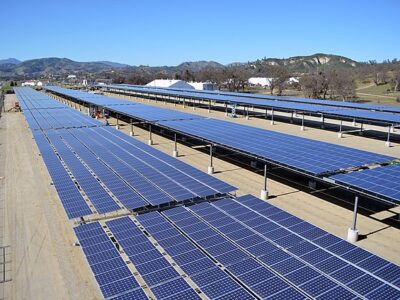Climate Policy
Broadening the Scope of Climate Policy
How to expand climate policy to new places and new sectors
This is the sixth in a series of posts. The first post is here. The second post is here. The third post is here. The fourth post is here. The fifth post is here. The political dynamics of decarbonization that I’ve sketched out are very specific to time, space, and economic sector. The policy approaches …
Continue reading “Broadening the Scope of Climate Policy”
CONTINUE READINGHow to Commit to Decarbonization
Feedback effects can lock in decarbonization policies, for better and for worse
This is the fifth in a series of posts. The first post is here. The second post is here. The third post is here. The fourth post is here. Decarbonization is a long-term challenge, and it requires commitments to drive the investments required for innovation and deployment of non-fossil-fuel energy sources. But long-term commitments, which …
Continue reading “How to Commit to Decarbonization”
CONTINUE READINGOn Carbon Pricing and Mass Climate Movements
Neither carbon pricing nor a mass climate movement can drive effective climate policy on their own
This is the fourth in a series of posts. The first post is here. The second post is here. The third post is here. What lessons can we draw from this analysis for key climate policy debates? Here, I will focus on two key lessons, first for carbon pricing, and second for the use of …
Continue reading “On Carbon Pricing and Mass Climate Movements”
CONTINUE READINGStep-by-Step: The Role of Sequencing in Effective Climate Policy
The key to climate policy is to start by supporting investments in new technologies that produce both innovation and political change
This is the third in a series of posts. The first post is here. The second post is here. How might sequencing work in climate policy? And why is it important? I’ll explore these questions by walking through the most important stage of climate policy – initiating action on climate change. The initial steps of …
Continue reading “Step-by-Step: The Role of Sequencing in Effective Climate Policy”
CONTINUE READINGThe Multiple Goals of Climate Policy
Effective climate policy requires consideration of efficiency, equity, technological innovation, carbon reductions and political feasibility
This is the second in a series of posts. The first post is here. When people think about climate policy, they probably think that the goal of climate policy is reducing greenhouse gas emissions. And of course, the ultimate goal of climate policy is to reduce emissions, eventually getting us to an economy that is …
Continue reading “The Multiple Goals of Climate Policy”
CONTINUE READINGThe Difficult Politics of Climate Change
How can we enact policy that is effective, resilient, and expands its ambition over time?
Climate change is a difficult problem to solve, politically. The costs of addressing climate change are born by current generations, but the benefits accrue to many generations to come. Addressing climate change might require people today to make significant sacrifices to benefit people around the world, as well as future generations. There are significant, powerful …
Continue reading “The Difficult Politics of Climate Change”
CONTINUE READINGDeal or No Deal?
Should Congress pass EPRA?
This is the second in a series of posts on permitting reform. The first post is here. Given the provisions of the Energy Permitting Reform Act (EPRA), should Congress enact it as it stands now? Answering that question is tricky, in part because it depends both on uncertain political and administrative action, as well as …
Continue reading “Deal or No Deal?”
CONTINUE READINGShould We Do Permitting Reform?
What is at stake with the Manchin bill.
As Congress wraps up its lame duck session before the new Congress and President arrive in January, there is a lot of debate about whether to move forward on permitting reform within a quickly shrinking window of time. The basis of debate is the Energy Permitting Reform Act (EPRA) co-sponsored by Senators Manchin and Barrasso. …
Continue reading “Should We Do Permitting Reform?”
CONTINUE READINGEven in Dark Times, There are Still Reasons to be Thankful
The election was largely a disaster. But we’ve also seen some positive developments.
Trump’s triumphant return to power promises to be a disaster for environmental protection, casting a pall over all else. Even so, if you’re someone who cares about energy and environment, there are some things to be thankful for ithis year Here are a few.
CONTINUE READINGCommunity Benefits Tools and Policy Drivers:
Select mechanisms can help ensure that energy projects deliver meaningful benefits for California communities
This is the third in a series of posts detailing CLEE’s new set of resources on Equitable Climate Infrastructure Investment. Communities and local and state governments are increasingly turning to community benefits tools to support an equitable climate transition, catalyze substantive long-term investments in community priorities, and achieve effective, durable projects. CLEE’s new report, Community Benefits Tools and California …
Continue reading “Community Benefits Tools and Policy Drivers:”
CONTINUE READING





